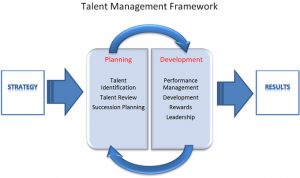The most important corporate resource over the next 20 years will be talent: smart, sophisticated business people who are technologically literate, globally astute, and operationally agile. To ensure their companies will have the right leadership and/or management team in place and fully functioning when they are needed to meet the organization’s strategic initiatives, CEOs must adopt a disciplined approach to talent management. That means aggressive management of the acquisition, growth, and retention of talent through a rigorous and logical process. Rather than using “gut feel” to make hiring decisions, business leaders must begin to analyze talent opportunities as fully as they would any other business opportunity, that is, identify risks, forecast profitability and develop strategic action plans to ensure successful execution.
One of the distinctions of a successful talent management program is the creation of “talent pools” within a company, which provides a reliable and consistent internal source of talent. The development of talent pools makes it easier to train and develop desirable skills and traits in a broader group of employees, which results in improvement of performance across functions and levels.

To be most effective, talent management must be aligned with company strategy, define leadership criteria that are consistent across all functional areas, and identify the technical skills (analytical ability, experience/skills, intelligence) that are needed for growth. By applying a well-orchestrated approach to talent management, organizations will be better able to ensure they have high performing team members in place who will significantly advance the company’s business goals and profitability objectives—both now and in the future.
